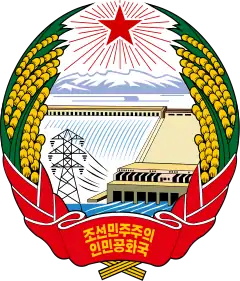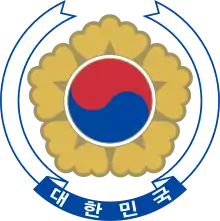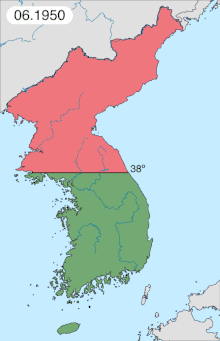Korea and the United Nations
The Republic of Korea (commonly known as South Korea) and the Democratic People's Republic of Korea (commonly known as North Korea) were simultaneously admitted to the United Nations (UN) in 1991. On 8 August 1991, the UN Security Council passed United Nations Security Council Resolution 702, recommending both states to the UN General Assembly for membership. On 17 September 1991, the General Assembly admitted both countries under Resolution 46/1.
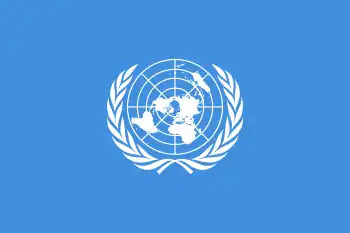  | |
| United Nations membership | |
|---|---|
| Membership | Full member |
| Since | September 17, 1991 |
| UNSC seat | Non-permanent (elected twice) |
| Permanent Representative | Joon Oh |
 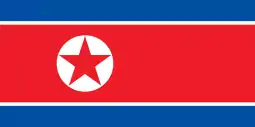 | |
| United Nations membership | |
|---|---|
| Membership | Full member |
| Since | September 17, 1991 |
| UNSC seat | Non-permanent (never elected) |
| Permanent Representative | Kim Song |
| Part of a series on |
| North Korea and the United Nations |
|---|
  |
History
In December 12, 1948, South Korea was officially recognized by the UN General Assembly (UNGA) under Resolution 195.[1][lower-alpha 1] Since then, South Korea participated in the GA as an observer.
In 1950, North Korea invaded South Korea, and the Korean War commenced. The UN Security Council took action in Korea.[2]
Coming with change of recognition in 1971 of the Chinese seat, North Korea gained observer status. North Korea has never held a seat on the UN Security Council.[3] It has a Permanent Mission to the UN in New York and additionally maintains a mission to the UN in Paris and an Ambassador to the UN at the UN Office at Geneva.[4][5]
South Korea has twice been elected to a non-permanent seat of the UN Security Council, first in the 1995 election for 1996–97 and again in the 2012 election for 2013–2014.
In 2001, Han Seung-soo of South Korea held the presidency of the UNGA. In 2006, Ban Ki-moon from South Korea was elected as the Secretary-General of the United Nations. He was re-elected in 2011.
Since 2005, the UNGA has adopted a resolution every year to condemn the human rights situation in North Korea.[6]
Notes
- The recognition was refused by Soviet Union and other communist states at the first time.
References
- "ODS HOME PAGE" (PDF). documents-dds-ny.un.org.
- "Resolution 84: Complaint of aggression upon the Republic of Korea". United Nations. Retrieved 2020-03-09.
- "Countries Never Elected Members of the Security Council". United Nations. Retrieved 2016-10-04.
- "Countries that have established diplomatic relations with the DPRK". North Korea in the World. East-West Center, The National Committee on North Korea. Retrieved 16 December 2020.
- Nebehay, Stephanie (22 May 2019). "North Korea Says 'Biggest Issue' in U.S. Ties Is Impounded Ship". Reuters. Retrieved 7 December 2020.
- "Resolution on N. Korea's human rights violations presented to U.N. committee". Yonhap. 28 October 2016. Retrieved 21 January 2017.
Further reading
- Chi Young Pak (2000). Korea and the United Nations. The Hague: Martinus Nijhoff Publishers. ISBN 978-90-411-1382-5.
- Jonsson, Gabriel (2017). South Korea in the United Nations: Global Governance, Inter-Korean Relations and Peace Building. World Scientific. ISBN 978-1-78634-193-8.
- Kŭktong Munje Yŏnʾguso (1973). North Korea's Policy Toward the United Nations. Institute for East Asian Studies.
